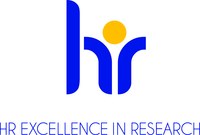Research institutes
UNamur members: If you wish to register to an institute, please go to the registration page...
THE UNamur Interdisciplinary instituteS
 Development Finance & Public Policies (DeFIPP)
Development Finance & Public Policies (DeFIPP)
The DeFIPP institute groups various centres: CRED (Centre of Research in the Economics of Development), CEREFIM (Centre for Research in Finance and Management) and CERPE (Centre for Research in Regional Economy and Political Economy). Its principal aim is to promote excellence in research in economy and finance. The three thematic areas are linked thanks to the use of theoretical and empirical economy methodology, enabling cross-fertilization via the sharing of new methodological approaches.
President : Marcus Dejardin
 Namur Philosophical Space (ESPHIN)
Namur Philosophical Space (ESPHIN)
ESPHIN is a transdisciplinary space open to the outside, dedicated to encourage original research around the topics of its two founding departments: Philosophy at the Faculty of Philosophy & Letters and Sciences-Philosophy-Society at the faculty of Sciences. In synergy with other entities, the researchers aim at the emergence of new topics in the key areas of philosophy like anthropology, ethics, aesthetics, epistemology, logics and metaphysics.
President : Bertrand Hespel
Vice-President : Nicolas Monseu
Contact: esphin@unamur.be
 Institute of Life, Earth and Environment (ILEE)
Institute of Life, Earth and Environment (ILEE)
ILEE gathers skills in basic and applied sciences, offering a high quality contribution to the better understanding of the evolution of life and the current and future environmental challenges. ILEE studies the evolution of human populations, organisms, agro- and ecosystems, mineral resources availability and involves in the process of finding sustainable solutions including ecological, technological, socio-economical, historical and cultural prospects.
President : Patrick Kestemont
Vice-President : Johan Yans
Contact: ilee@unamur.be
 UNamur Didactics and Education Research Institute (IRDENa)
UNamur Didactics and Education Research Institute (IRDENa)
IRDENA studies education as a research subject. The researchers question the changes and innovations, which shake scholar and training systems as well as the roles, identities and training devices for education actors. The question about the evolution of training environments refers to questions about organisational, pedagogical and didactics conditions and the professional development of the actors who design, develop and evaluate them.
President : Sephora Boucenna
VView the video
 Namur Digital Institute (NADI)
Namur Digital Institute (NADI)
In NADI, researchers bring innovative solutions to the new societal challenges resulting from the digital revolution (eGov, eHealth, eServices, Big Data…). Researchers in different fields combine their skills in computer science, technology, ethics, law, management and society. They address issues such as software and systems, innovation and services, collaborative economy, artificial intelligence, security and privacy or technology and society.
Co-presidents : Jean-Marie Jacquet & Yves Poullet
Contact : nadi@unamur.be
View the video
 Namur Institute of Language, Text and Transmediality (NALTT)
Namur Institute of Language, Text and Transmediality (NALTT)
Uniting linguists and literary scholars, the Institute of Language, Text and Transmediality at UNamur constitutes a platform for diachronic and synchronic interdisciplinary research into the manifold ways in which different types of verbal and multimodal communicative practices manifest themselves in, give shape to, are regulated by and reflect culture and society.
Président : Jeroen Darquennes
 Namur Research Institute for Life Sciences (NARILIS)
Namur Research Institute for Life Sciences (NARILIS)
NARILIS seeks to stimulate bidirectional interactions between basic researchers and medical doctors, and to build bridges from bench to bedside. Hence, NARILIS aims to facilitate the translation of findings in fundamental research to clinical applications. Its mission is to promote multidisciplinary research to improve human and animal health and quality of life.
President : Jean-Michel Vandeweerd
Contact : info@narilis.be
 Namur Institute for Complex Systems (naXys)
Namur Institute for Complex Systems (naXys)
The naXys institute is specialized in the analysis of complex systems, whether it comes to astronomy and dynamic cosmology, mathematical biology, optical optimization, economic complexity or study the stability or strength of these systems. Thanks to the knowledge in each of these topics and through real field data analysis, the aim is to model each of the studied complex systems thanks to mathematical approaches and numerical simulations and study their control and optimization.
President : Anne-Sophie Libert
Contact : naxys@unamur.be
 Namur Institute of Structured matter (NISM)
Namur Institute of Structured matter (NISM)
NISM deals with various research topics related to organic chemistry, physical chemistry, material chemistry, surface science, solid-state chemistry and physics from a theoretical as well as from an experimental point of view. It aims at exchanging and sharing skills and ideas in the field of the synthesis and functionalisation of molecular systems and innovative materials, from 0 to 3 dimensions. Another aim is to ease the rational conception of solids with specific surface architectures and properties, while developing advanced techniques to study their physico-chemical properties.
President : Vincent Liégeois - Vice-president : Francesca Cecchet
 Patrimony, Transmissions & Heritage (PaTH)
Patrimony, Transmissions & Heritage (PaTH)
The PaTH institute is a federation of research centers in and around the Faculty of Philosophy, grouping researchers from varied horizons: prehistorians, historians, sociologists, art historians, archeologists or classic and modern philologists… They aim at favouring a diachronic approach of social and cultural events and intensify collaborations between various social studies, which all have very different aims and research methodologies.
President : Fulgence Delleaux
 TRANSITIONS
TRANSITIONS
The TRANSITIONS institute aims at exploring the different ways in which nature and human societies undergo processes, periods, and impacts of transitions. Transitions put the current ways of living, working and thinking under intense pressure, the outcomes of which are undetermined. TRANSITIONS emphasizes the main fields wherein transitions are of a critical significance: environment, economics, development, mobility, digital landscapes, politics, education, health, justice and social cohesion. These fields are examined using a combination of methods, concepts and theories.
President : Jérémy Dodeigne
Management and financing : Founding note











